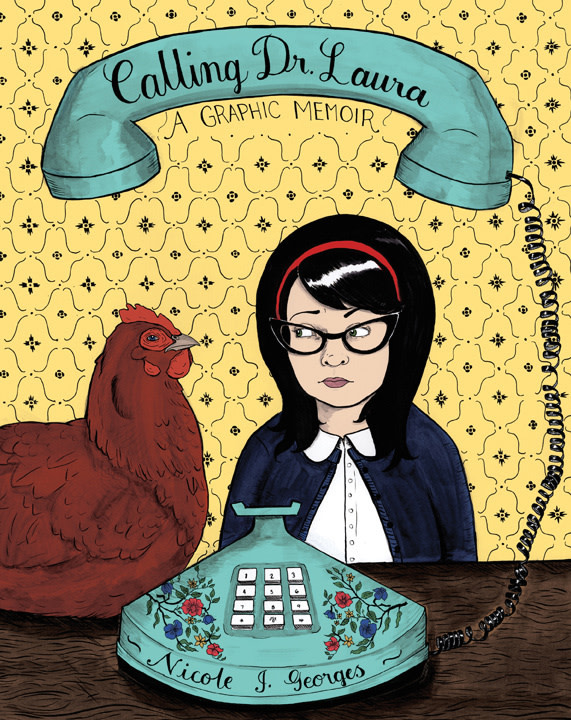Book Review: Calling Dr. Laura

A good zine is a raw piece of art—the hand-drawn, photocopied, and stapled testament to its creator’s need to get something out from deep inside. But let’s face it, some of them are pretty hard to read.
In Nicole J. Georges’s new book, Calling Dr. Laura, you get all the best of the eclectic zine world, with little of the worst. It’s a charming graphic memoir: quirky, revealing, and heartfelt. It’s also very legible, and the ink won’t smear all over your hands.
Having spent the past 14 years practicing and teaching the zine-making craft, as well as working as an illustrator and pet portrait artist, Georges is a classic Portland talent—self-made and independent, sporting cat-eye glasses and rockabilly hair. Her book, told in a series of comic-book-length vignettes, essentially follows her search for knowledge about her absent father. But along the way we also learn about Georges, her loves, her pets, and her alarmingly odd mother. It feels a bit like we are eavesdropping on a therapy session, but an interesting, well-edited one.
The story opens as Georges begins to suspect that her mother has lied to her about Georges’s father’s death after a psychic tells her he’s alive. Georges’s sister shamefully confirms that the family fabricated his death, but still Georges won’t confront her mom, and, by the way, won’t tell her that she is a lesbian.
“I also kept trying to hang up when Dr. Laura offered long silences in which to reflect on the gravity of her words. I’d ruin the moment by blurting out ‘Thanks Dr. Laura’ before being snapped back into submission.”
— Page 199
The story shifts back and forth from present-day Portland to memories of a troubled youth in Florida, while a series of abusive or clueless stepdads come and go in the background. The drawing style shifts, too: simple lines for youthful memories, complex shading for the trials of adulthood. Calling Dr. Laura exemplifies how the relatively young art form of graphic memoir can at times be more revealing and intimate than text alone. Georges’s depictions of the many, many dogs running through her life are especially touching.
I don’t want to give too much away as far as the father hunt goes, beyond saying that it comes to a satisfying conclusion. And yes, Georges calls Dr. Laura Schlessinger and has a long conversation about her indecision and anger toward her mother. Dr. Laura tells Georges, basically, to get over it. Not terrible advice, as it turns out.
This is a fine book in the proud tradition of strong, creative, and independent Northwest women. Let’s hope it finds its way into the hands of young zinesters across America and shows them the beauty that can be made out of a troubled past.
Nicole J. Georges will read at Powell’s City of Books on January 22 at 7:30 p.m.




